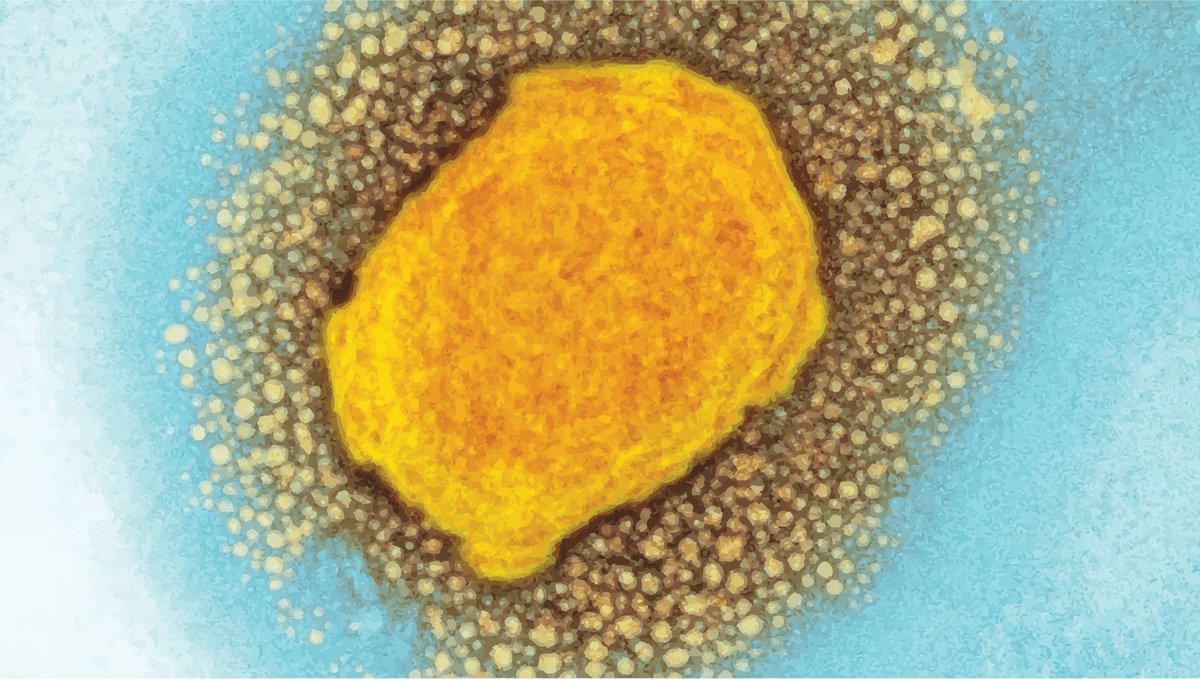
There’s been a worrying trend recently of talking about monkeypox as if it’s a sexually transmitted infection, or worse, a “gay disease” that won’t affect the majority of people. Neither is true, as a new research letter in the CDC journal Emerging Infectious Diseases has made clear.
The letter reports a case of a man in his twenties who came to a California emergency department after a week of rashes across his body: tiny, fluid-filled blisters which had been turning up throughout the previous week.
Doctors found lesions of different stages on his hands, his torso, and back, and even a crusty one on his lip. His penis, testicles, and anus had none, and he had no classic secondary signs of infection like fever or lymph node swelling.
“Results of complete blood count and basic metabolic panel results were unremarkable,” the letter reports, and the patient tested negative for HIV, gonorrhea, chlamydia, and COVID-19. However, when they tested the fluid from a blister on his palm, it came back positive for the monkeypox virus – specifically, the virus clade that has caused so many cases in Europe and the US.
Unlike many of the monkeypox patients seen by health experts over the past few months, the man in the case report had no history of close sexual contact with anybody within the previous three months. In fact, he reported no close indoor activities other than traveling on planes and trains.
“The first lesion appeared ≈14 days after he attended a large, crowded outdoor event at which he had close contact with others, including close dancing, for a few hours,” reports the letter. “He said that many attendees were in sleeveless tops and shorts. He wore pants and a short-sleeved top. He did not notice any skin lesions on anyone present, nor did he notice anyone who seemed sick.”
Not only did nobody at the event seem sick, but – outside of the rash – neither did the patient. According to the review, he experienced no fevers, chills, headaches, cough, fatigue, or anorectal pain – none of the symptoms that have been reported by other infected individuals.
“This case highlighted the distinctiveness of clinical manifestations as they indicated potential routes of transmission during the 2022 multicountry outbreak of monkeypox,” write the researchers. “His case highlights the potential for spread at such gatherings, which may have implications for epidemic control.”
The case comes hot on the heels of another study, published this week in the Annals of Internal Medicine, which found positive monkeypox virus PCR results in samples from asymptomatic men who have sex with men. Out of 200 patients, researchers from Bichat–Claude Bernard Hospital in Paris, France, found 13 who tested positive for the virus. Only two went on to develop symptoms.
The findings reveal a surprising – and worrying – possibility that asymptomatic transmission of the monkeypox virus is possible. That means two very important things. Firstly, much more research is needed into how the virus can spread – whether it be through sexual contact, infected items like bedding, or public events. Secondly, the current public health response, which concentrates on vaccinating only those people who have had close contact with a confirmed case, may not be adequate.
“Whether this indicates viral shedding that can lead to transmission is unknown,” the French report concludes. “If so, the practice of ring postexposure vaccination around symptomatic persons with probable or confirmed MPXV infection may not be sufficient to contain spread.”
Source Link: Well, It Seems Monkeypox Could Spread Asymptomatically, So What Now?